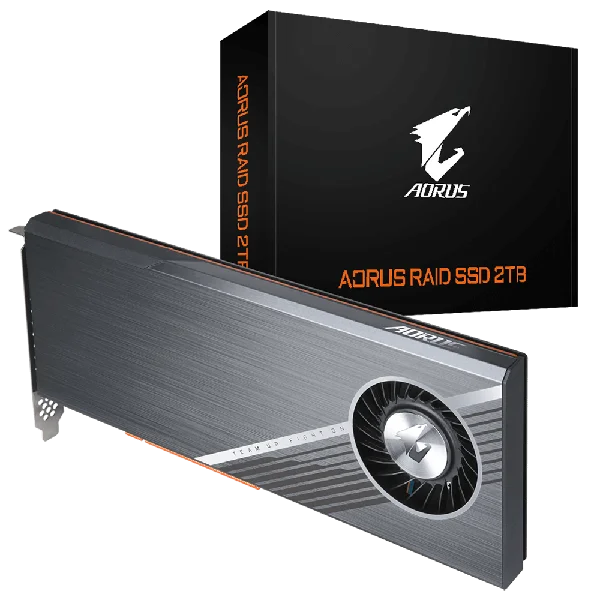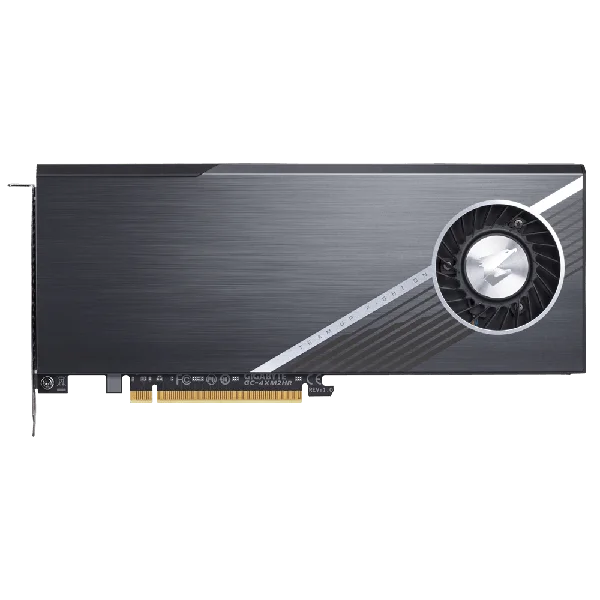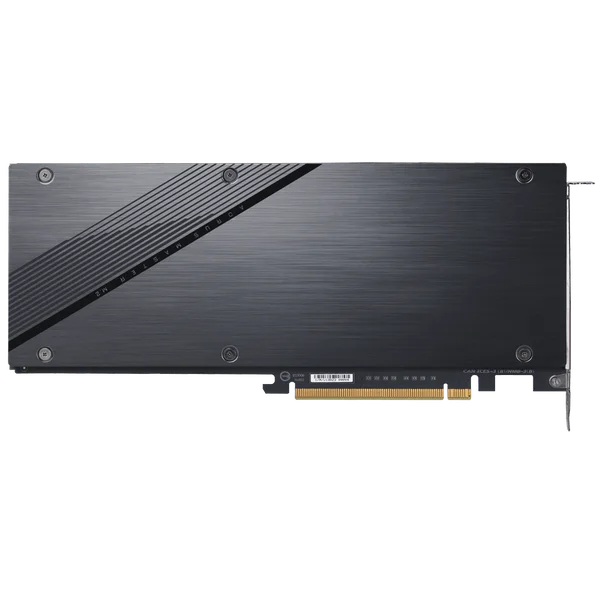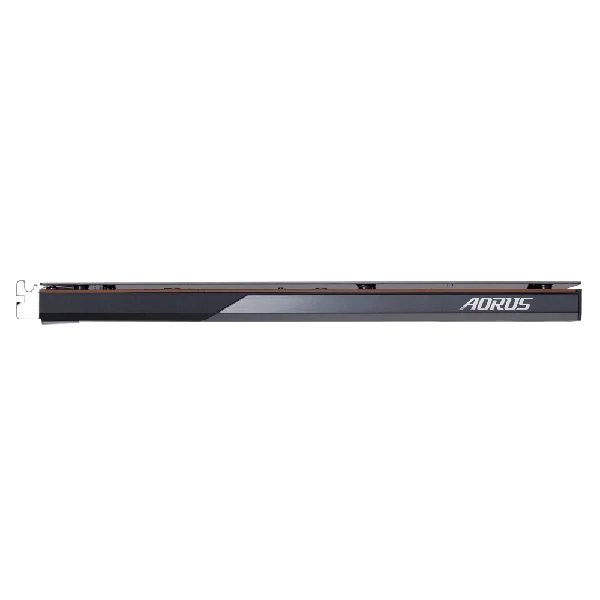



GIGABYTE AORUS RAID SSD 2TB Card
Highlights:
- Form Factor : PCl Express Card
- Interface : NVMe 1.3, PCIe 3.0 x8
- Capacity : 2TB*
- Seq. Read speed : up to 6,300 MB/s (QD32T1)**
- Seq. Write speed : up to 6,000 MB/s (QD32T1)**
- Controller : Phison E12
- NAND Flash : 3D TLC
- Warranty: Limited 5-years
Only 5 items left!
Don't miss it
Description
AORUS RAID ADAPTOR built in with 4 x PCIe 3.0 512GB NVMe SSD, Equipped with enterprise class NVMe RAID controller, Advanced Thermal Solution, Dedicated AORUS Storage Manager
BEST UPGRADE SOLUTION FOR PCIE 3.0 PLATFORM
AORUS RAID SSD 2TB equipped with four high speed 512GB SSD and server class RAID controller, RDs optimized the design to push performance to the boundary to blazing fast speed up to 6300 MBs for sequential read speed and 6000 MBs for sequential write speed. It's almost two to three times faster than PCIe 3.0 SSD. No doubt it's the best upgrade solution for users who have a PCIe 3.0 platform such as Z390 but would like to experience PCIe 4.0 Ultra fast transfer rate in advance. It surely brings high efficiency to your work, shorten the time of waiting. It’s the perfect solution for people like video editors, 3D file creators and engineers who make giant files daily. Further more, you can easily to configure RAID array to meet your needs under BIOS setting.
Embedded with the Enterprise Level NVMe RAID Controller
The enterprise grade RAID Controller ensures server class performance reliability to unleash the full potential of normal consumer PCIe 3.0 SSD. The benefit of switch is low latency due to it does not do any hard work on NAND Flash management. The Marvell Intelligent NVMe Switch has x8 interface and connected up to four NVMe SSD behind switch and can be presented individually to the host system. In addition, user are free to configure RAID array as need, RAID1 for Data redundancy and RAID 0 for performance or both(RAID10).
Advance Thermal Solution for Extreme Performance
The thermal design is exclusively for high end SSDs with its smart active and passive cooling. It prevents SSDs from thermal throttling and ensures stable operation. The working temperature is 30%* lower with the armor, dense heatsink and reactive fan.
Armor with Conducted Airflow and Active Fan
A multi-cuts heatsink touches the SSD's hottest area. The blower fan helps to draw heat away more quickly, preventing thermal throttling on the SSD to maintain amazing speeds at all times.
Temperature Sensor and Fan Profile
Built in with 9 temperature sensors to real time monitor SSD and RAID controller working temperature. The dedicated AORUS Storage Manager*, it provides three fan operating modes for user to choose base on hardware configuration and workload. In the meantime, minimize fan noise and extend the fan's longevity. Silent, the quiet one, Balanced and full speed Performance mode.
AORUS Storage Manager
AORUS Storage Manager is a dedicated software to detect and monitor multiple SSD status such as how many SSD is detected, select different fan mode base on different hardware configurations.
| Attribute | Value |
|---|---|
| Interface | PCI-Express 3.0x8, NVMe 1.3 |
| Form Factor | PCI Express Card |
| Total Capacity | 2TB |
| NAND | High Quality 3D TLC |
| External DDR Cache | 512MB / per SSD |
| Sequential Read speed | Up to 6300 MB/s |
| Sequential Write speed | Up to 6000 MB/s |
| Mean time between failure (MTBF) | 1.77 million hours |
| Power Consumption (Active) | Average: R : 19W; W : 19W |
| Power Consumption (Idle) | 7.5W |
| Temperature (Operating) | 0°C to 70°C |
| Temperature (Storage) | -40°C to 85°C |
| Warranty | Limited 5-years or 700TBW / per SSD |
| Note | * Test system configuration: configuration may vary by models, we will choose the latest platform for verification. |
| * Performance may vary based on SSD's firmware version and system hardware & configuration. Sequential performance measurements based on CrystalDiskMark v.5.1.2 and I0meter 1.1.0. | |
| * Speeds based on internal testing. Actual performance may vary. | |
| * TBW (Terabyte Written):Terabytes Written" is the total amount of data that can be written into an SSD before it is likely to fail. | |
| * 1GB = 1 billion bytes. Actual useable capacity may vary. | |
| * 5 years or 700TBW, whichever comes first. | |
| * TBW is evaluated by JEDEC workload standard. |